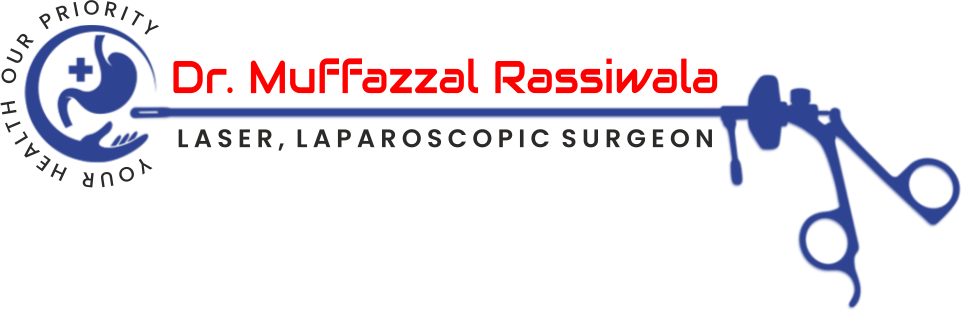Esophageal Atresia Surgeon in Indore
Home » Treatments » Esophageal Atresia Surgeon in Indore
+91-8085010071
+91-8851463446
Muffazzalr@gmail.com
Visit Us
Address1:
Cabin No. Cabin no. 104, First floor Shalby R S bhandari Marg, Janjeerwala Square, Indore, Madhya Pradesh - 452003
Address2: Shop 6, Manik Bagh Rd, Phadnis Colony, Ashoka Colony, Palace, Indore, Madhya Pradesh 452014
Address3: 45 Jawahar Marg, 1st Floor, Badshah Chamber, Near Municipal Car Parking, Premsukh Cinema, Indore, Madhya Pradesh - 452007
Best Esophageal Atresia Surgeon in Indore
Esophageal atresia is a congenital condition in which the esophagus, the tube that carries food from the mouth to the stomach, does not develop properly. In esophageal atresia, the upper part of the esophagus ends in a blind pouch rather than connecting to the lower part of the esophagus and stomach. This can result in difficulty swallowing, feeding difficulties, and respiratory problems in affected infants.
Symptoms or Causes:
The exact cause of esophageal atresia is not fully understood, but it is believed to result from abnormal development of the fetal esophagus during early pregnancy. Risk factors for esophageal atresia may include genetic factors, maternal smoking or alcohol consumption during pregnancy, and certain maternal medical conditions such as diabetes. Symptoms of esophageal atresia typically become apparent shortly after birth and may include difficulty swallowing, drooling, choking, coughing, cyanosis (bluish discoloration of the skin), and respiratory distress.
Treatment Options:
Treatment for esophageal atresia usually involves surgical repair to reconnect the upper and lower parts of the esophagus and restore normal swallowing function. The specific surgical procedure performed depends on the type and severity of the esophageal atresia, as well as the presence of any associated abnormalities. In most cases, surgery is performed soon after birth to prevent complications such as aspiration pneumonia and malnutrition. After surgery, infants with esophageal atresia may require specialized feeding techniques and close monitoring to ensure adequate nutrition and growth.
Why Choose Us:
- Multidisciplinary Team: Our team of pediatric surgeons, neonatologists, pediatric gastroenterologists in Indore, and other specialists collaborates closely to provide comprehensive care for infants with esophageal atresia. We have extensive experience in managing complex congenital conditions and offer individualized treatment plans tailored to each patient’s needs.
- Advanced Surgical Techniques: We utilize the latest surgical techniques and technology to perform repair procedures for esophageal atresia with precision and expertise. Our Esophageal Atresia Surgeon in Indore have specialized training in pediatric surgery and strive to achieve optimal outcomes while minimizing risks and complications.
- Family-Centered Care: We understand that a diagnosis of esophageal atresia can be overwhelming for families, and we are committed to providing compassionate, family-centered care in a supportive and nurturing environment. Our team takes the time to listen to families’ concerns, answer their questions, and involve them in the decision-making process regarding their child’s treatment and care.
- Long-Term Follow-Up: We provide long-term follow-up care for infants and children with esophageal atresia to monitor their growth, development, and swallowing function over time. Our goal is to optimize the health and well-being of our patients and support them throughout their journey from infancy to adulthood.
If your child has been diagnosed with esophageal atresia or if you have concerns about your child’s feeding or swallowing function, contact us today to schedule a consultation with our experienced pediatric specialists. We are here to provide expert diagnosis, treatment, and support for children with esophageal atresia and their families.
frequently asked questions (FAQs)
Esophageal atresia is believed to result from abnormal development of the fetal esophagus during early pregnancy. While the exact cause is not fully understood, genetic factors, maternal smoking or alcohol consumption during pregnancy, and certain maternal medical conditions may increase the risk of esophageal atresia.
Symptoms of esophageal atresia typically become apparent shortly after birth and may include difficulty swallowing, drooling, choking, coughing, cyanosis (bluish discoloration of the skin), and respiratory distress.
Treatment for esophageal atresia usually involves surgical repair to reconnect the upper and lower parts of the esophagus and restore normal swallowing function. The specific surgical procedure performed depends on the type and severity of the esophageal atresia.
The prognosis for esophageal atresia depends on various factors, including the type and severity of the condition, the presence of associated abnormalities, and the timing and success of surgical repair. With prompt diagnosis and appropriate treatment, many infants with esophageal atresia can achieve good outcomes and lead healthy lives. However, long-term follow-up may be needed to monitor for complications and ensure optimal growth and development.

